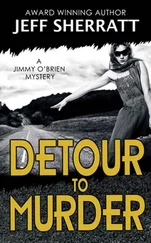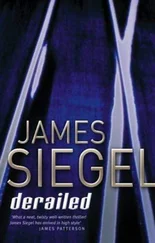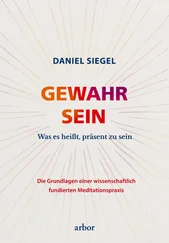Sometimes the wall became someone she knew. Paul. From time to time she tried to imagine where he was—in a prison for drug smuggling? Dead? When she felt suffocated with fear, she’d place him right there beside her and fill him in on her day.
Sometimes Paul answered back.
What’s wrong?
They killed my friends.
Maybe you’re wrong about that.
No. There was blood on the mattress. I discovered it the day they left.
Maybe one of your friends cut herself.
No. It was a lot of blood. And Maruja left something behind.
Still.
You have to believe me. Sometimes I feel like I’m going crazy, but I’m not going crazy.
Okay. I believe you.
I’m scared now. Every day I’m scared.
Stay strong. You’re Xena, my warrior princess, remember? Besides, I’m coming for you.
When? I want to be home, Paul.
Soon, honey.
When?
Soon.
SHE ASKED TOMÁS FOR THE ROSARY BEADS.
“Maruja gave them back to you when you released her, I guess,” Joanna said.
Tomás didn’t answer her. But when Joanna asked for them, he handed them over.
She’d been watching the way the door locked. A key turn from outside slid a small bolt into the lock. That’s it. The wooden jamb looked ancient and wormy.
Joanna ripped off one cork bead from the rosary. The cork was barely malleable, like half-hardened clay.
When Galina took her out of the room for the next morning feeding, she pushed the small piece of cork into the lock hole, grinding it in with her thumb.
That night she watched as one of the girls left the room, closed the door behind her, and dutifully turned the lock. Joanna listened for the telltale click. She didn’t hear it.
A growing excitement took hold of her. A warm glow, like a shot of aged brandy when you’re really, really cold.
Beatriz had drawn stars to get out of prison, only Beatriz had been murdered in her bed.
This was better.
Only she was still chained to the wall. And she couldn’t leave without her baby.
There was the question of what to do next. She didn’t wake up one morning with an escape plan. She hadn’t talked strategy with the wall. She took this first step and said if it works, we’ll take another.
Then something presented itself, something that took care of two major obstacles at once.
Joelle got sick again.
Just a bad cold this time—enough to make her sniffly, irritable, and slightly feverish.
Joanna asked Galina if Joelle could stay with her. Not just for an hour or two, but all night, like the time Joelle had pneumonia and she’d walked her back and forth for hours on end.
Galina said yes.
Then Joanna asked her something else. Could they unchain her? What if Joelle needed to be rocked? Joanna might need to walk her around the room. It would be immeasurably helpful if she wasn’t chained to the radiator.
Galina seemed less accommodating there.
Joanna pleaded her case, and finally, Galina said she’d talk to the guard.
It was Tomás. Maybe he liked her more now that she’d gotten religion. Maybe he was making amends for murdering her friends. He said fine. No chain tonight.
When he closed the door behind him and turned the lock, Joanna held her breath.
No click.
So here it was. She’d taken one step, then another and another, and suddenly, she’d reached a door. It was tantalizingly open.
For a moment Joanna wondered if she could actually walk through it.
The bloodstain on the mattress both prodded and held her back. If she failed, they’d kill her for trying. If she stayed, they’d kill her eventually.
Courage.
She waited for hours—till her internal clock placed the time at somewhere around two in the morning. She was reasonably sure there wouldn’t be anyone outside the door—when she’d needed that rag in the middle of the night, she had to bang on the door for five minutes before Puento answered.
She tiptoed to the door and put her ear up against the wood. Nothing.
She turned the knob.
It didn’t move. For just a moment she said okay — I was wrong. The cork didn’t work. The door’s still locked. I’m stuck.
Then she gave it a bit more pressure.
The knob turned.
The door edged open.
It was like the door in a haunted-house movie—the door you shouldn’t open but do. The door that has something evil waiting for you on the other side.
There was nothing there.
Empty hall.
Since they’d removed her mask for walks to the feeding room, she’d learned enough to know where things were. To her right was the kitchen, the feeding room, the place they kept Rolando—if he was still actually there.
To the left—freedom.
Joelle was sleeping fitfully in her arms. She had visions of her waking up and screaming—the best alarm system a FARC guard could ask for. She’d have to move very slowly and very carefully. She’d have to inch along.
When she stepped out into the hall, it felt as if she were moving through something physical—a force field of science fiction. She stopped and breathed. Then she turned left and padded down the hall, one small shuffle at a time, till she came to what had to be the outside door—the one they’d brought her through blindfolded and terrified.
She was still terrified.
She pushed it open.
THIRTY
Trajectory.
Atoms have it. Electrons and neutrinos. Lives too.
The trajectory of the bullet that killed Miles, that left him slumped and oddly peaceful-looking with the Agram 2000 still glued to his hand, went through his neck and directly into one of the dusty legal tomes that took up most of his bookcase. New York State Adoption Statutes. The bullet’s force sent several other books flying, scattering pages like confetti.
Paul ignored it at first. Trajectory.
Instead, he assumed a helter-skelter trajectory of his own. Nearly flying off a suddenly blood-splattered desk, then staggering around the room like a boxer on his last legs, unsure whether to go down or keep fighting.
He remained upright.
Clues, his brain nagged him.
Miles was his last link to what happened in Colombia.
Clues.
Miles had been right about the silencer. No one would’ve heard the gun go off—it sounded like the small pop you make by pulling a finger out of your cheek. Like a cartoon sound effect.
There was plenty of blood, though. The room stank of it.
Paul came around the side of the desk where Miles still sat—his body . He tried to ignore it—this lifeless lump of flesh that used to have a name and a voice and a family.
Know what’s the worst sin in Orthodox Judaism?
Paul opened the desk drawer. Papers, staples, pencils, two half-empty packs of gum. Wrigley’s spearmint. A calculator, ticket stubs, paper clips, envelopes. He had no idea what he was looking for.
Clues.
The question was, what was a clue? How did you divine clues from ordinary office things, the stuff of daily life?
They’re starting to put it together. I can tell.
He looked through some of the papers in the desk drawer. A W-2 tax form. A solicitation for subscription renewal from a legal journal. A coupon from Toys “R” Us—circled in red ink. Chatty Cathy. A New York Giants schedule from 1999.
A phone book.
The one Miles had looked through when he’d pantomimed calling María—when he’d snapped his fingers and said the driver. Pablo. María must have his number somewhere.
María’s number was in there, of course.
Pablo’s would be also.
Paul didn’t know his last name—he’d just been Pablo the driver, Pablo the hired help.
Читать дальше












